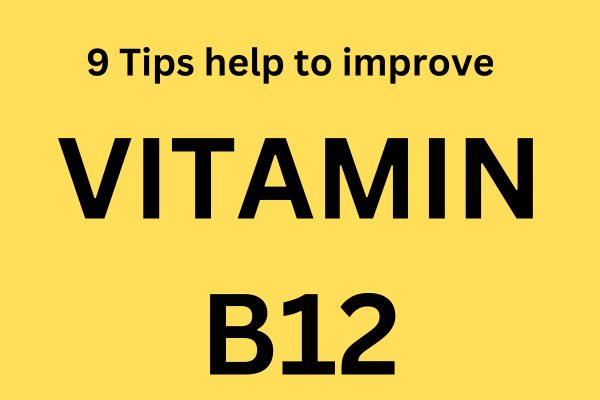Table of Contents
Toggle1-Incorporate B12-Rich Foods:
Include foods rich in vitamin B12, such as beef liver, clams, fish (such as salmon and trout), poultry, eggs, and dairy products. Fortified grains and plant-based milks are also good sources for vegetarians or vegans.
2-Consider supplements:
If you have trouble getting enough B12 through diet alone, consider taking a B12 supplement. Methylcobalamin is a commonly prescribed form, but it is important to consult a healthcare practitioner to determine the correct type and dosage.
3-Eat Fortified Foods:
Look for B12-fortified foods, especially if you’re vegan or vegetarian. Fortified breakfast cereals, nutritional yeast, and some plant-based milks can help increase your intake.
4-Limit alcohol consumption:
Excessive alcohol can interfere with B12 absorption. Moderation is key, as alcohol can damage the stomach lining, which is important for B12 absorption.
5-Take care of your gut health:
A healthy gut is essential for B12 absorption. Probiotics and fermented foods such as yogurt, kefir, sauerkraut and kimchi can support gut health, increasing B12 absorption.
6-Be careful with medications:
Some medications, such as proton pump inhibitors (PPIs) and metformin, can interfere with B12 absorption. If you are on these medications, talk to your healthcare provider about monitoring your B12 levels.
7-Check for underlying conditions:
Conditions such as pernicious anemia, celiac disease, and Crohn’s disease can affect B12 absorption. If you have symptoms of B12 deficiency, such as fatigue, weakness, or memory problems, it is important to be tested and treated for any underlying conditions.

8-Eat animal products regularly:
If you are vegetarian or vegan, eating animal products regularly can help maintain B12 levels. Organ meats, shellfish and fatty fish are particularly high in B12.
9-Regular blood tests:
Get regular blood tests to monitor your B12 levels, especially if you are at risk of deficiency due to age, diet, or medical conditions. Early detection of low B12 levels allows for timely intervention.
By following these tips, you can help ensure your body maintains adequate levels of vitamin B12, which is vital for energy, brain function and overall health.

